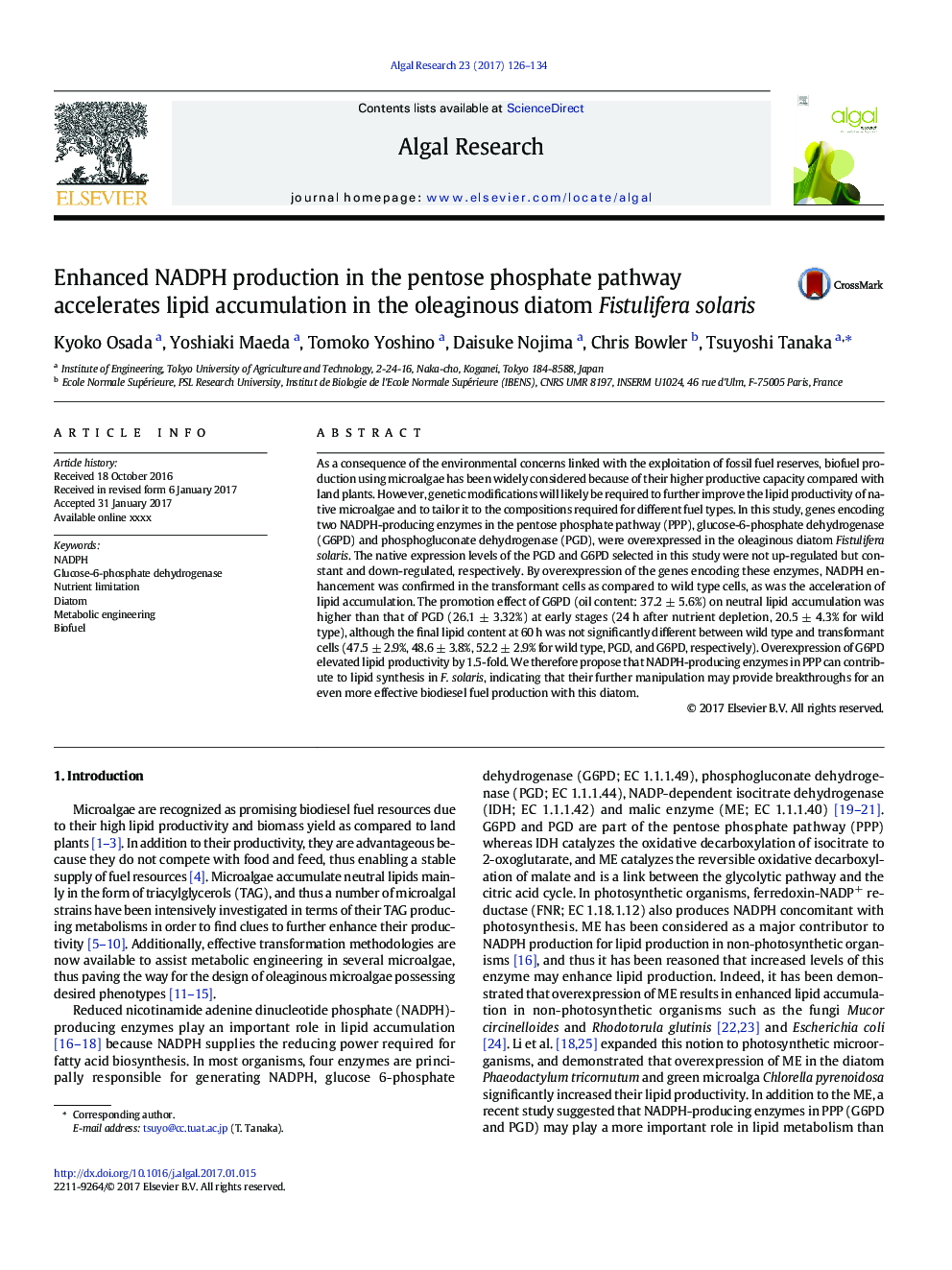| Article ID | Journal | Published Year | Pages | File Type |
|---|---|---|---|---|
| 5478327 | Algal Research | 2017 | 9 Pages |
Abstract
As a consequence of the environmental concerns linked with the exploitation of fossil fuel reserves, biofuel production using microalgae has been widely considered because of their higher productive capacity compared with land plants. However, genetic modifications will likely be required to further improve the lipid productivity of native microalgae and to tailor it to the compositions required for different fuel types. In this study, genes encoding two NADPH-producing enzymes in the pentose phosphate pathway (PPP), glucose-6-phosphate dehydrogenase (G6PD) and phosphogluconate dehydrogenase (PGD), were overexpressed in the oleaginous diatom Fistulifera solaris. The native expression levels of the PGD and G6PD selected in this study were not up-regulated but constant and down-regulated, respectively. By overexpression of the genes encoding these enzymes, NADPH enhancement was confirmed in the transformant cells as compared to wild type cells, as was the acceleration of lipid accumulation. The promotion effect of G6PD (oil content: 37.2 ± 5.6%) on neutral lipid accumulation was higher than that of PGD (26.1 ± 3.32%) at early stages (24 h after nutrient depletion, 20.5 ± 4.3% for wild type), although the final lipid content at 60 h was not significantly different between wild type and transformant cells (47.5 ± 2.9%, 48.6 ± 3.8%, 52.2 ± 2.9% for wild type, PGD, and G6PD, respectively). Overexpression of G6PD elevated lipid productivity by 1.5-fold. We therefore propose that NADPH-producing enzymes in PPP can contribute to lipid synthesis in F. solaris, indicating that their further manipulation may provide breakthroughs for an even more effective biodiesel fuel production with this diatom.
Keywords
Related Topics
Physical Sciences and Engineering
Energy
Renewable Energy, Sustainability and the Environment
Authors
Kyoko Osada, Yoshiaki Maeda, Tomoko Yoshino, Daisuke Nojima, Chris Bowler, Tsuyoshi Tanaka,
